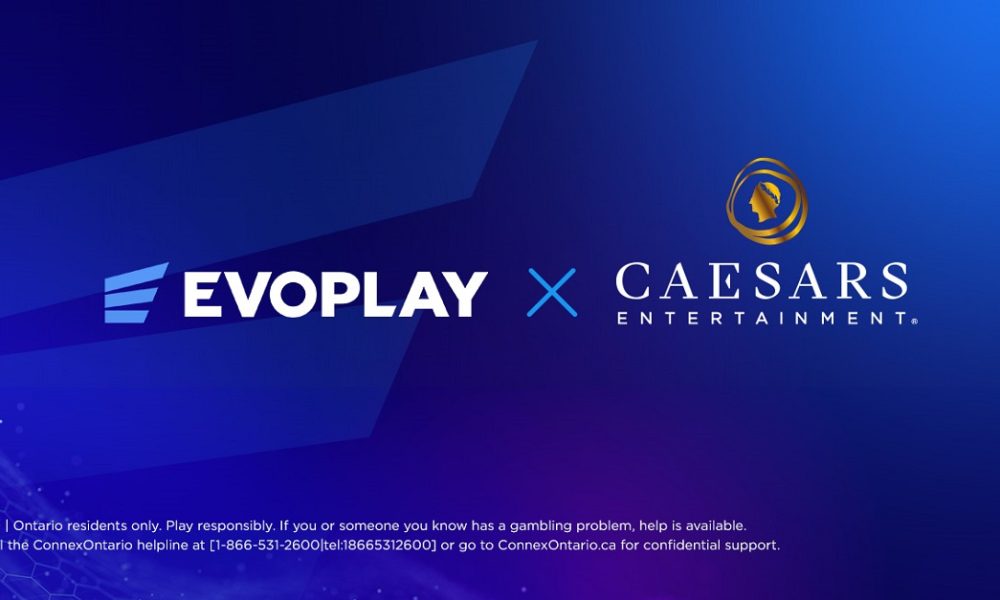

Canada
Nuvei Powers Sports Betting Payments for Carousel Group in the United States
Nuvei Corporation, the global payment technology partner of thriving brands, today announces an agreement with Carousel Group, a rapidly-growing privately-held licensed sports betting and casino operator. Through the agreement, Nuvei is powering payment transactions for Carousel Group’s flagship brand, SportsBetting.com. Launching initially in Colorado, the Company will support Carousel Group’s expansion across the U.S., as it plans to make its online sportsbook available in additional regulated markets, including Iowa, Indiana and New Jersey.
SportsBetting.com integrates Nuvei’s payment technology, benefiting from built-in compliance and fraud prevention, one-click payments, and real-time user payouts. Nuvei’s wide-ranging alternative payment methods (APMs) and support for multiple bank sponsors offers even greater payment processing flexibility. Nuvei will also provide the required expertise and innovative payment solutions for the upcoming launch of MaximBet, a strategic partnership between Carousel Group and media brand Maxim, offering a multi-platform online destination for sports and casino fans.
“We are excited to be providing Carousel Group with secure and reliable payments as we continue to grow our footprint into U.S. iGaming and sports betting. As our first pilot merchant in the U.S. regulated gaming space, we worked together closely shortly after having received state vendor approval last summer to successfully launch into the Colorado market,” said Philip Fayer, Nuvei’s Chair and CEO. “Since then, not only have we expanded our payment capabilities and portfolio of APMs, but through our recent acquisition of Mazooma, we are adding exclusive product functionality, vendor registration and infrastructure to address operator requirements in any regulated U.S. state.”
“We are always looking to provide the best customer experience for our users, so partnering with Nuvei as our payment technology provider enables us to enhance the experience on our SportsBetting.com platform, further helping position Carousel Group and our brands as leaders within the gaming industry,” said Phillip Wilson, Chief Operating Officer of Carousel Group. “Having a diverse set of payment methods is critical for success in the booming regulated U.S. market and Nuvei’s technology allows us to integrate all the key providers.”
Nuvei’s Cashier simplifies how sports betting operators process payments and facilitates entry into new regulated markets via its proprietary compliance technology. Carousel Group can now choose from an array of additional services offered by Nuvei à la carte, including real-time fraud detection, risk management and instant payouts. Through a single integrated platform, Nuvei aims to maximize Carousel Group’s revenue, while creating a seamless payment journey for players on SportsBetting.com and beyond.
Nuvei continues its push as the payment technology partner of choice for regulated iGaming and sports betting brands across the U.S.
Canada
absolutebet Secures AGCO Registration as an Internet Gaming Operator in Ontario

Internet Gaming Operator by the Alcohol and Gaming Commission of Ontario (AGCO).
This significant milestone authorizes absolutebet to offer regulated iGaming services in Ontario’s legal market under the oversight of AGCO and iGaming Ontario (iGO).
The registration marks a key step in absolutebet’s mission to bring a trusted, responsible, and innovative online casino experience to Ontario players. absolutebet is committed to operating with integrity and transparency, meeting all provincial standards for player protection, responsible gambling, anti-money laundering, and game integrity.
“Securing AGCO registration is more than a milestone—it’s the start of absolutebet’s journey in one of the most exciting regulated markets in the world,” said Chen Truman, Founder of absolutebet. “We are building a brand that will grow with the Ontario community and set the stage for future expansion.”
On the regulatory milestone, Krisztina Kalla, Legal & Regulatory Compliance Advisor of absolutebet, commented: “I’m incredibly proud to see all the hard work behind this license pay off. Securing AGCO registration has taken months of preparation and close collaboration with regulators and partners. I am very happy to see the result of that work, and even more excited as we move into the launch phase and open up the absolutebet community to Ontario players in a fun and responsible way.”
Ontario is recognized as one of the most competitive and fast-growing regulated iGaming markets in North America. With AGCO registration secured, absolutebet will move forward with the final stages of its iGO onboarding process in preparation for launch.
The post absolutebet Secures AGCO Registration as an Internet Gaming Operator in Ontario appeared first on Gaming and Gambling Industry in the Americas.
Alex Malchenko Head of Sales at Evoplay
Evoplay strengthens Ontario presence in partnership with Caesars Entertainment

Evoplay, the award-winning game development studio, has partnered with Caesars Entertainment to expand its footprint in the Canadian market, following its initial entry earlier this year. The partnership integrates 20 of the studio’s top-performing titles onto Caesars Palace Online Casino, Horseshoe Online Casino and Caesars Sportsbook & Casino in Ontario, including fan-favourites such as Hot Triple Sevens, Triple Chili, and The Greatest Catch Bonus Buy.
Having announced its official entrance into Ontario in March, the collaboration with Caesars marks a significant step in Evoplay’s local strategy. Further standout releases, such as Inner Fire Bonus Buy and Hot Volcano, also launched as part of the initial package, with additional player favourites, including Fruit Nova and Ice Mania.
The collaboration underlines Evoplay’s commitment to working with leading operators to deliver high-quality content tailored to regional audiences.
Alex Malchenko, Head of Sales at Evoplay, said: “Launching with Caesars in Ontario marks a key milestone in our North American strategy.
“It reflects both the strength of our portfolio and our commitment to providing innovative, high-performing content to operators of the highest caliber.”
Ricardo Cornejo Rivas, Vice President of Online Gaming at Caesars Digital, said: “Evoplay brings a fresh and dynamic approach to online gaming, which we’re excited to offer to our players in Ontario. This portfolio of standout titles adds to our growing content library and furthering our ongoing goal of delivering top-tier entertainment experiences to our players.”
The post Evoplay strengthens Ontario presence in partnership with Caesars Entertainment appeared first on Gaming and Gambling Industry in the Americas.
Canada
iGaming Ontario Appoints Joseph Hillier as its New President and CEO

The iGaming Ontario Board of Directors has announced Joseph Hillier as the organization’s new President and Chief Executive Officer, effective September 8, 2025. Joseph’s depth in the Ontario igaming market combined with successful public and private sector careers make him the ideal President and CEO at this critical point in iGaming Ontario’s growth.
Joseph was most recently Chief Strategy Officer and Corporate Secretary at the Alcohol and Gaming Commission of Ontario (AGCO), where he delivered significant strategic and regulatory initiatives across the province’s alcohol, cannabis, gaming, and horse racing sectors. Prior to the AGCO, he served as Chief of Staff to Ontario Attorney General Hon. Doug Downey and led the development, launch and implementation of Canada’s first private sector-driven igaming market and the creation of iGaming Ontario. Joseph also spent more than a decade working in the financial and legal services sectors.
The Board expressed its sincere thanks to David Smith for serving as Interim President and Chief Executive Officer since Martha Otton’s retirement.
The post iGaming Ontario Appoints Joseph Hillier as its New President and CEO appeared first on Gaming and Gambling Industry in the Americas.
-

 gaming3 years ago
gaming3 years agoODIN by 4Players: Immersive, state-of-the-art in-game audio launches into the next generation of gaming
-
EEG iGaming Directory8 years ago
iSoftBet continues to grow with new release Forest Mania
-
News7 years ago
Softbroke collaborates with Asia Live Tech for the expansion of the service line in the igaming market
-
News7 years ago
Super Bowl LIII: NFL Fans Can Bet on the #1 Sportsbook Review Site Betting-Super-Bowl.com, Providing Free Unbiased and Trusted News, Picks and Predictions
-
iGaming Industry8 years ago
Rick Meitzler appointed to the Indian Gaming Magazine Advisory Board for 2018
-
News7 years ago
REVEALED: Top eSports players set to earn $3.2 million in 2019
-
iGaming Industry8 years ago
French Senator raises Loot Boxes to France’s Gambling Regulator
-
News7 years ago
Exclusive Interview with Miklos Handa (Founder of the email marketing solutions, “MailMike.net”), speaker at Vienna International Gaming Expo 2018









